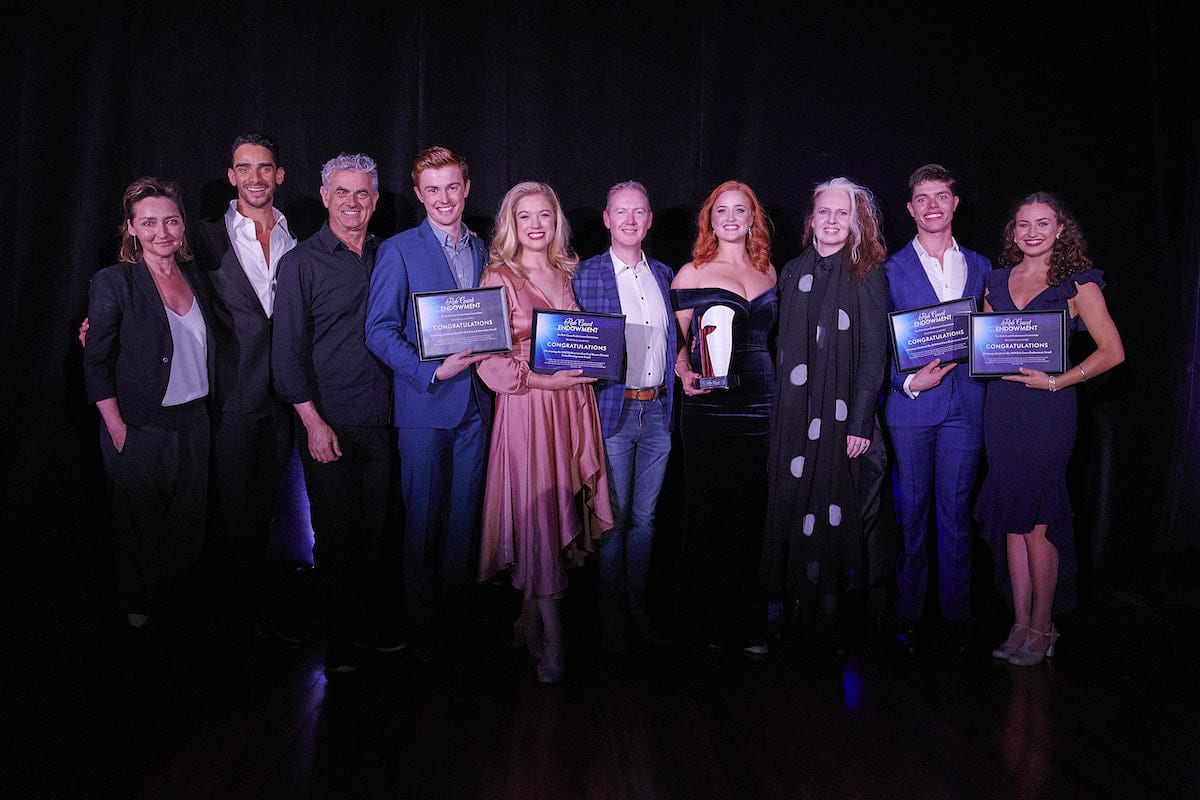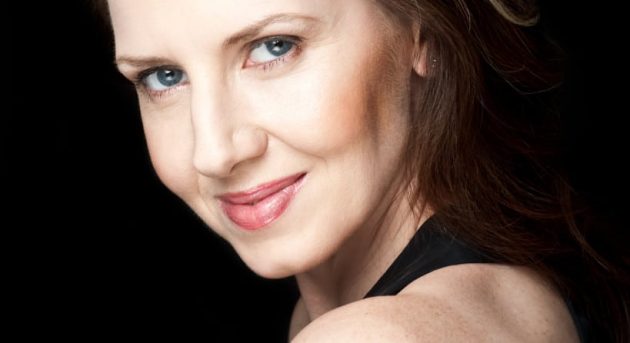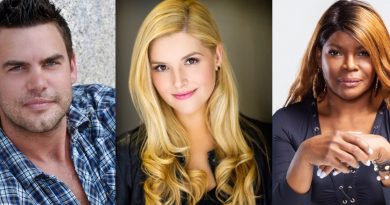Kellie Dickerson on the expectations of a Musical Director
So many performers have the chance to work with choreographers in a dance class, learning their expectations in a group setting similar to that of a rehearsal. In an audition room, directors are usually given chances to workshop their actors to communicate exactly what their vision is. But what of a musical director?
There seem to be less avenues available for us to work with these creative types outside of a work setting, learning how to get the most out of them and how they can get the most out of you. While there are so many technical acting and dancing classes available, I’m not sure the same can be said for music skills. (If you’re one of those people that has the self-motivation to sit down with an AMEB syllabus and brush up on your note groupings, hats off to you. Me, and most of the people I know, are not.)
This is why I wanted my next column to explore the role of the musical director and their expectations of performers in an audition, in the rehearsal room, and what qualities those performers have that are most desirable. Who better then to share my coffee with than maestro extraordinaire, Kellie Dickerson.

I have been lucky enough to see this woman at work and she constantly handles herself with grace and calm, a personal quality that seems to be consistent across successful musical directors. While everything could turn to madness around them (and it certainly will at points), they have the ability to stay productive and proactive.
Musicianship in Auditions
Unlike choreography pick-up or taking scene direction, showcasing one’s music skills seem to be less straightforward in an audition setting. Kellie describes that a performer’s own song is where she can answer most of her technical questions. Ideally, “by singing your own song, you present something that you know really well so that the stress is taken off you. So I should be able to hear how your voice is used, what kind of voice type it is, and what timbre it has. What is really indicative of technique is how they use the voice through their range and whether it is even. Whether there’s a register they flip out of, whether there is a register that is difficult to negotiate, dynamic range, tuning, and ring to the sound that makes the voice carry. If they’ve got good tuning in the very stressful situation of an audition, that’s a great thing, because Opening Night is also going to be very stressful.” Kellie does clarify that the song does not need to show the extremes of your range, because no song is going to be able to do that, but “when you need a note for a test point, (the musical director) can either give a scale or a phrase, or get them to sing material from the show, which you usually do after that first stage.”
“So I’m listening to technique in your own choice, the director is watching your interpretation, and the choreographer is watching whether your body is connected. That’s why we keep telling people to sing something you know really well. There’s a lot you can tell by someone’s own song.”
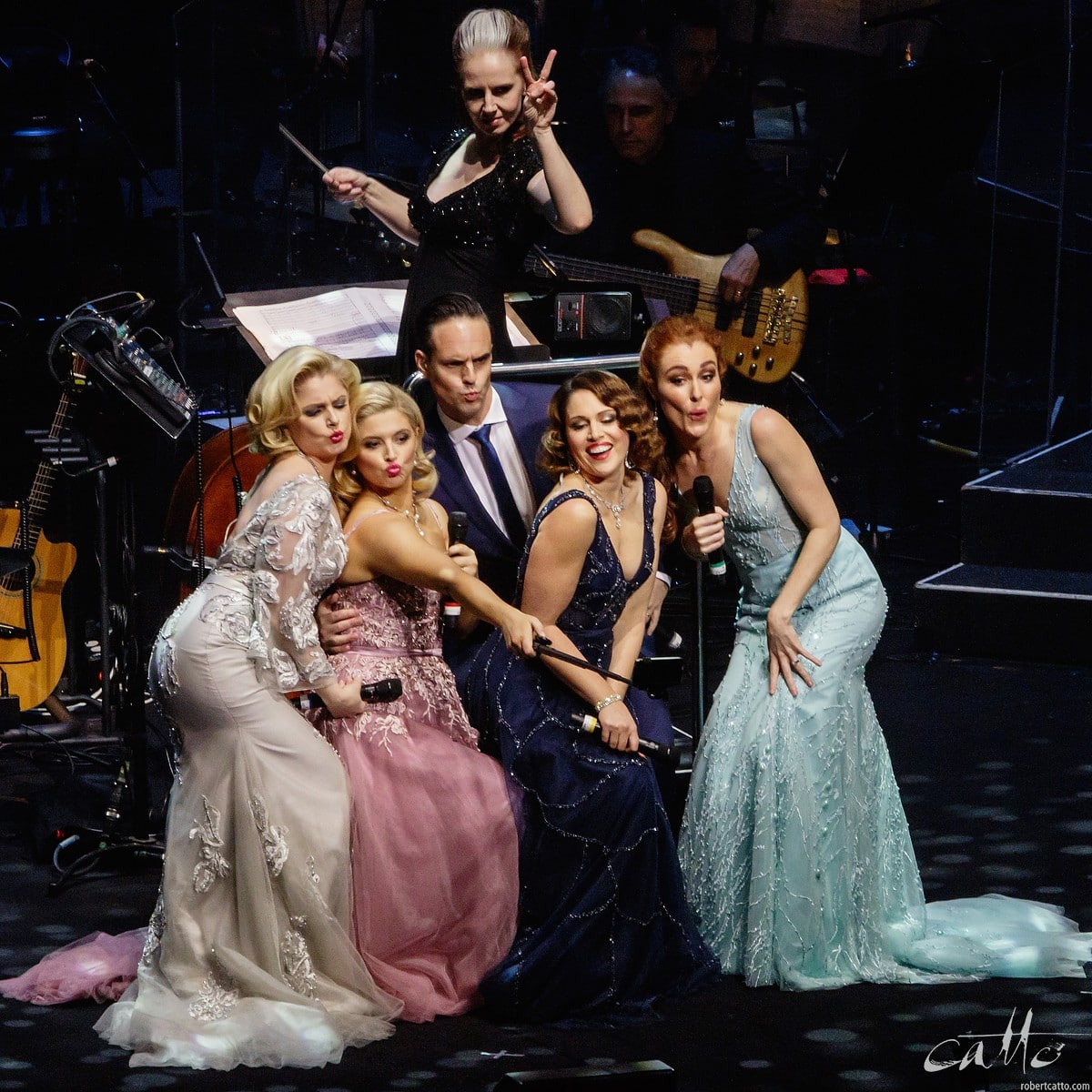
‘The Perfect Song’
It also seems that many performers spend energy on finding that perfect song that is so suitable it sounds like it was cut from the show in previews. Instead, the priority should be showing who you are.
“It’s much more important that you make a choice that shows (your sound), rather than finding the perfect song. If you do find that perfect song, great! They’ll be very happy to hear it, but it won’t be the thing that gets you the job, unless it also shows who you are. The role of the first audition is just to get a second audition, not to get the show.”
Another aspect that is often sidelined is to simply put your best foot forward. A common mistake is “to try and sing a Top C if its risky. If you can wake up in the morning and sing a Top C, bless you! Sing it out! There’s no point in being a soprano and only singing up to an F, because your competitive edge is being able to sing those notes. But if its ‘only on a good day’, don’t do it. Sing what makes you sound great.” In your audition folder, Kellie recommends five songs that cover a variety of styles and that could fit most things. And a choice of songs that you “know really well and could get up in the morning and sing whether you’re sick, well, tired or happy.”
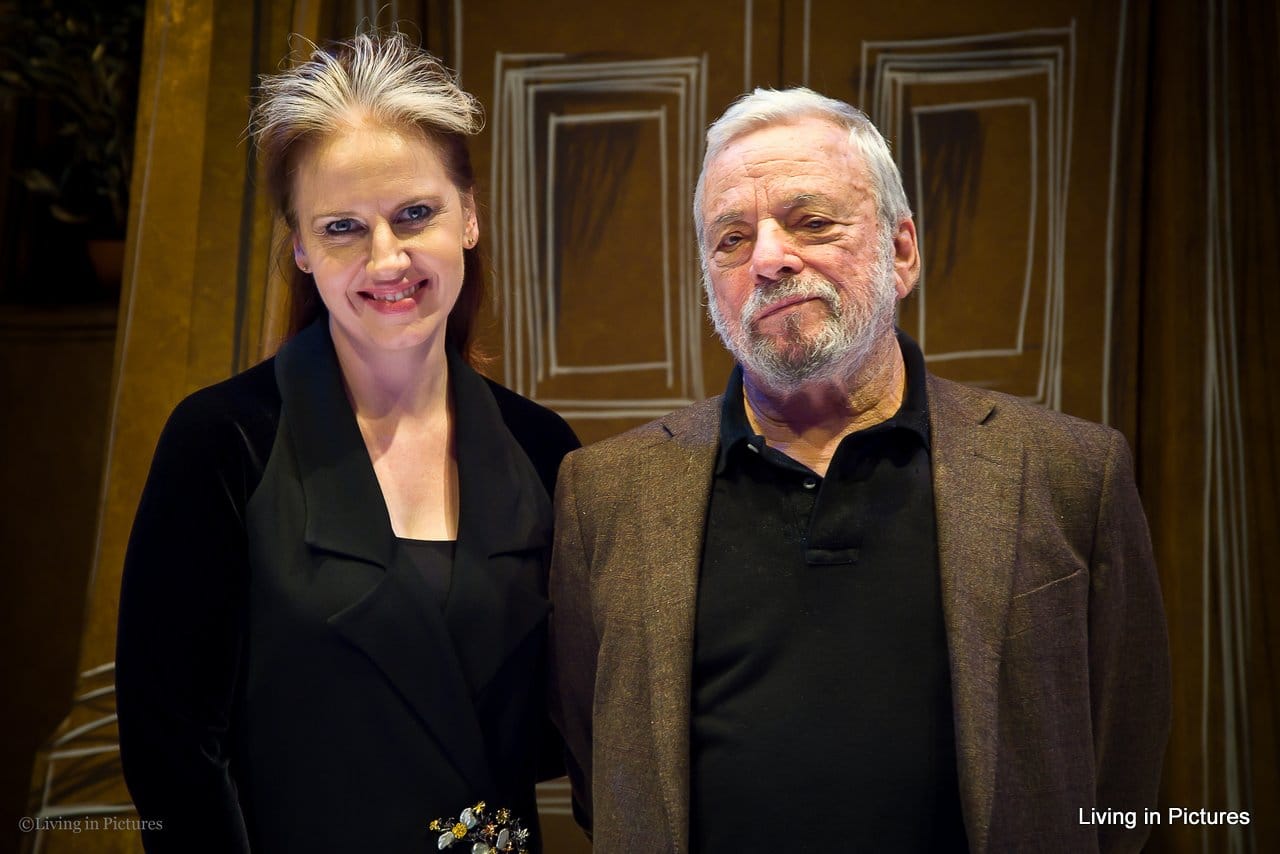
Showing your Individuality
While finding a song that’s stylistically suitable and knowing the world of the show is important, balancing that with showing who you are and what makes you unique is crucial. Performers aren’t going to be right for everything, and Kellie places the priority on what you are, rather than what you think they want.
“You’re either going to be right for the job or not. Pick what you can be in control of, and you can’t be in control of casting a show. Your job is to present yourself as well as you can, and it will result in something.”
“If you’re a Soprano with a great mix, wouldn’t it be terrible if you only ever go into auditions and belt because you think that’s what they want, and you never get to show who you really are.”
While there are such a limited number of opportunities in this country, and there can be so much pressure on booking this current job, each opportunity to audition or perform can always benefit you down the track.
“I’ve consistently recommended someone who has done a great audition to another music director or another director for a show that’s coming up. When you’re auditioning for the show, you’re also auditioning for the industry. So if you do a good audition, people will notice and keep a record. I’ve got records from the last ten years of show auditions and I’ll go through the notes and look for people and see how they’re going and developing and recommend them to other people. And everyone does this.”
So once you’ve got the job because you’re a musical extraordinaire who picked the perfect audition song while staying true to yourself, how do you stay useful to your musical director, and thus keep said job?
Music Preparation
Personally, I often feel unclear about the musical expectations of me before Day 1 of rehearsals, and end up overcompensating and learning enough to vocal swing the show before we’ve even started. Or sometimes I’m not given the score in advance, and have sleepless nights that I’ll relive the Aural test I failed when I guessed that the interval was a Major 2nd. It was a Minor 7th. And how do these expectations change between a commercial, established show, and a new Australian staging of a show? Kellie describes that it actually varies mostly between ensemble and principals. Until you can start hearing what the ensemble blend is like, what the backstage tracking is, and what character choices are made, the parts need to remain flexible. Therefore, she doesn’t expect the ensemble to know anything before they open the score and start together. This does mean that “music skills for the ensemble are very useful. You rarely cast on music skills, but it is helpful because it takes the stress off when you’re learning. The more you can read the music in front of you, the less you feel at sea with all the information being thrown at you.”
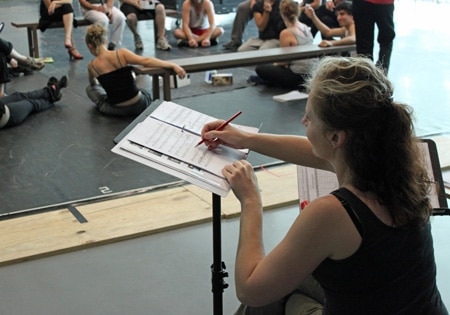
However, Kellie warns that it can sometimes be detrimental. “Sometimes a very clever musician can get very internal because they’re visualising the music and they’re thinking about musical details before the external acting and performance details.”
“If you can read music and follow along the page, and understand what the music director is saying in terms of what line you are on and what note you are singing in the chord, that’s really helpful for your own learning process. I see it as a wish list – its something I’d really love people to have so that we can get onto the details more quickly, such as the interpretation and phrasing.”
“With the principals, it’s a little different because they have solo numbers and have often spent time, I would assume, with their technical singing teacher to help them plot some basic ways through the song for their voice. They would get the score before the rehearsals and I wouldn’t assume they know it by memory, although some would, but I would expect some familiarity so that they’ve already thought about how to approach certain notes or phrases and how to place them in their voice. In a short rehearsal period, this means they can take on what the director is telling them, which is essentially the main factor in a rehearsal process. You need to get through the music to get to the character, but at the end of the day, character is the most important thing. Music is the vehicle in which we tell the story.”
New vs. Established Works
In terms of the preparation between an established work as opposed to a new work, Kellie admits that a performer can sometimes “have a very detailed set of parameters. That’s happened more in recent history, because people are expecting a similar interpretation to what they saw on Broadway. To maintain that all around the world, they have to give people very clear parameters, otherwise the interpretation would be wildly different. Parameters can sometimes be very detailed and it feels like there’s no room to move, but there’s always room to move. The movements just become smaller. There may be ways that a composer wants to hear the phrase sung. And it’s not that they don’t want to hear it your way, they just want the intention to be the same. If they’ve cast it the right way and your skills match what they’ve written, you will belt those notes because you have the ability to do so. And they’ll want that excitement and the tension from the sound of a belt rather than a mix.”
While many actors could lament the creative restrictions of being in an already established Broadway production, Kelli’s natural optimism turns it into a learning experience.
“The way that I look at it, shows that are established have been really well crafted by experts – you can learn a lot about crafting a song, if you learn from their structure and the parameters they give you. You can learn from their tools about how to create a character so that when you go to a new piece, you have a wider knowledge in which to make informed musical choices. It’s a balance between learning craftsmanship from something where you’re given a lot of detail, and then using those details on something where you’re given no detail. And as long as you have the opportunity to go between both, I don’t find there’s a better or worse, you just have to be aware of the difference between the two. They’re both valid as long as you keep your eyes and ears open with the detail that’s around. Don’t view it as a restricting factor, which it can feel like, view it as a gift of craftsmanship. If you came to a new work without the experience of working on an established piece, you might not be aware of the choices available to you.”
